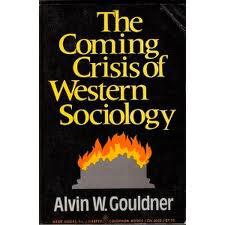Reexamining social sciences in the context of globalization (I)


Social Sciences originated in the West. Starting in England, France and Germany, they entered America, becoming somewhat universalized. Soon after, they continued to develop in Latin America and the rest of the world. But today a very important change has taken place: Western countries no longer dominate the production of knowledge within social sciences. By no means is this to say that the West has abandoned social sciences or that other countries now hold a dominant position in social sciences discourse. The current status of social sciences requires us to reexamine the social sciences from the perspective of globalization.
Globalization questions Western-centrism
The background of globalization poses two lines of reflection. First, is social sciences too bound by Western-centrism? Are we too easily influenced by the Western world in the methods we choose to employ and the topics we choose to research in social sciences? Should we rethink the relation between Western social sciences and the cultural and ideological tradition from which it emerged? The second question to reflect on is the scope of the social sciences—is there a universal value?
If we believe relativism, then there is not. According to relativism, Chinese, Korean, or French thought should not be completely communicable and intelligible to the other two. Chinese thought for instance, is understandable and accepted by the Chinese; the Koreans can accept some of it; and the French can accept even less. Thus, from the perspective of relativism, the mainstream thought of each country is not universally valuable. Many people are strongly opposed to this thinking. It is worth stressing that what Westerners call "universal value" is, as Marx puts it, quite abstract. As such, it could easily become divorced from reality and tended to become a tool of colonizing and exploitative behaviors. So what we need to ask ourselves is how we should re-create the concept of "universal value" in the context of contemporary globalization.
Social sciences in history
In what ways are the social sciences of the 1950s and 1960s distinguished from those today? Take sociology for an example. In the 1950s and 1960s, sociology was not only interventional and political. It also had a critical function. The theory of the sociologists in that period was very systematic and comprehensive. For instance, the American sociologist Talcott Parsons, active in the 1950s, was eager to establish a broad theory of society that would enable scholars to contemplate problems of sociology from a comprehensive and systematic perspective. In this way, he also inherited the ideological tradition and theoretical resources of Max Weber and Émile Durkheim. The sociologists at that time, though not all functionalists, mostly constructed their ideological system from comprehensive perspectives.
In the sociology of the 1950s and 1960s, it was possible to connect concrete analysis and broad systems of thought. Sociologists were not only involved in the public sphere, but would even participate in social movements. Marxist intellectuals in France, for instance, condemned the regime rather than serving it.
Structuralism was also prevalent in the social sciences at that time. It was paradoxical that many sociologists intervened in public affairs while also claiming to be structuralists, because one of the ideas of structuralism is that the concept of the "subject" is very dangerous. During this period, the structuralists were very concerned with trying to comprehend broad and abstract concepts like systems and mechanisms; they absolutely were not concerned with social actors. Because they wanted to engage in the public sphere though, sociologists needed to keep contact with scholars in other fields. For example, in Paris University at Nanterre, the center of the movement led by French students in 1968, sociologists worked together with scholars of urban studies, architecture, and psychoanalysis.
From the 1970s onward, sociology started to become more lively, and there were big changes in the main currents of thought. Sociologists began questioning grand systems like functionalism. As the influential economic thinker Ernst Schumacher put it, "small is beautiful". Scholars started focusing on very finite and concrete topics and the relationships between them, an approach that soon overshadowed functionalism. The appeal of Parsons' works faded; students were loath just to leaf through a few pages of one of his books.
In the 1980s and 1990s, scholars started to believe that the social sciences should keep a certain distance from politics. At the same time, research became very specific and fragmented, especially in America. During those decades, sociology books in American university bookstores just sat on the shelf collecting dust—few new ones were published. However, books about homosexuality, the holocaust and African-American studies proliferated. This sort of fragmentation indicated that sociology had split off into several different sub-fields, between which there was no overarching universal theory. An inevitable byproduct of this fragmentation was relativism—each research field had its own experts, who had no reason to interact with one another. Some scholars perceived the hazards of this transformation as it was happening. In his The Coming Crisis of Western Sociology, the prominent American sociologist Alvin W. Gouldner described the downfall of functionalism. Irving Louis Horowitz, another American sociologist, criticized the splintering of sociology and pervasive relativism of the discipline in The Decomposition of Sociology.
New perspective: globalization versus individualism
Since the 1990s, the social sciences have undergone new changes. Currently, two related but paradoxical questions need to be explored: globalization and individualism. The former is a broad, all-pervading issue, while the latter is specific and personal. The globalization of the economy has weakened the role of organizations and institutions and changed the way countries function. It has also enabled individuals to realize their most personal aspirations. However, globalization also undermined the function of social unity and collective action. So in a sense, globalization promotes individualism.
What does individualism mean exactly? First, it refers to the ability to safeguard one’s personal interests. Through higher income, access to better education and medical service, etc. individuals are able to sustain a more decent life. Second, individualism concerns the construction of self-identity. Many sociologists use the word "ubjectivity" to describe the capability of an individual to construct his own sense of self.
Unfortunately, not all individuals are able to optimize a subjective sense of self. Poverty, racism, and the emergence of urban slums and other forms of inequality are ubiquitous. When an individual cannot be the subject of his own actions, he will often exhibit another social tendency, like violent racism, etc. This is why we should reflect on individualism in the context of globalization. Some sociologists began noting this as early as the 1960s and 1970s, like the French sociologist Michel Crozier's in his 1977 work Actors and Systems: The Politics of Collective Action. The American sociologist Charles Wright Mills criticized functionalism in his 1959 book The Sociological Imagination, writes, "Neither the life of an individual nor the history of a society can be understood without understanding both." Therefore, social sciences should ask broader "global" questions, rather than confining its questions to the context of a single society or nation. This also means that "individual" and "global" have become the new perspectives of social scientific analysis. This is quite different from the national perspective emphasized during the early stages of social sciences.
Michel Wieviorka is a French sociologist, the director of the Centre d'Analyses et d'Interventions Sociologique (CADIS) at the École des Hautes Études en Sciences Sociales.
The Chinese version appeared in Chinese Social Sciences Today, No. 565, February 28, 2014
Translated by Bai Le
Revised by Charles Horne
